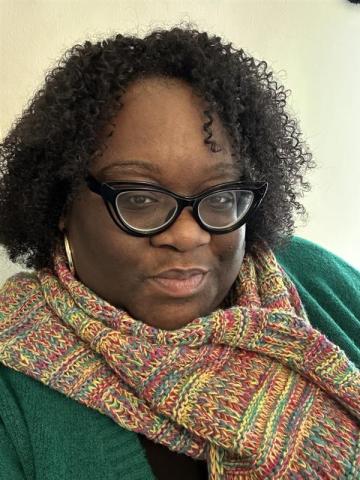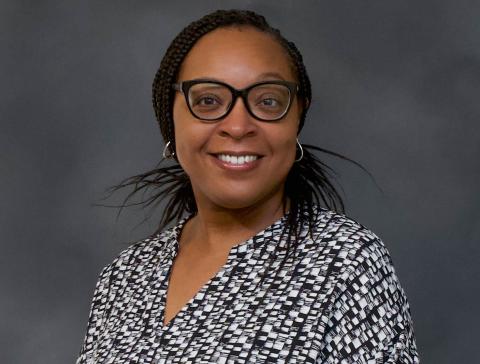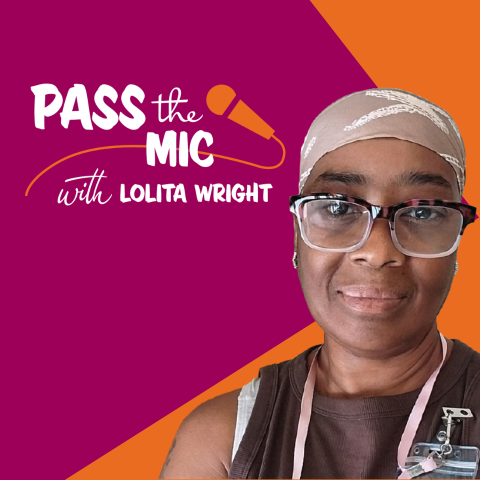Expanding our (out)reach in the community
Q&A with Outreach Services Manager John Lane
In August, 2022, our outreach team transitioned from the Supportive Services Department to the Client Access Department and integrated with the Mobile Clinic. We sat down with John Lane, Outreach Services Manager, to understand this change and the exciting work ahead for his team.
John, you have been with Health Care for the Homeless for over 20 years. What has motivated you to stay?
I started out working for a security firm. HCH was a contractual space for me. That was 1998 (24 years ago)! After a year in that role, I built a lot of rapport. I was 19 or 20 and didn’t know much about homelessness. I gained a lot of institutional knowledge on the first floor and good relationships with clients. When Ms. Goldy retired, I filled in as a receptionist for about a year. There were only 45 staff at the time, so we all wore a lot of hats. I did a lot with analytics and tried to figure out clinic flow. So I was offered the position of Client Flow Specialist, compiling stats and performing analytics, calculating the number of people we could see for the day and creating next day appointments. Two years later, I was hired as Client Services Coordinator and overlooked the first floor at our Park Avenue clinic, including security, medical records and even facilitating art therapy group. In 2013, Health Care for the Homeless got a HRSA grant for the Mobile Clinic and had 145 days to get it running. I was put in charge to help figure out what kind of mobile clinic we wanted. I visited other programs around the state and out of state. It took a year and a half to have our Mobile Clinic custom built. In the meantime, we were given a loaner from Baltimore City Health Department which we piloted as ER divergence at the Baltimore City emergency shelter.
In 2014, our Mobile Clinic was up and running, and I became the Mobile Clinic Coordinator.
The change in jobs and tasks has kept me interested all these years. I wasn’t just doing one thing. The mission is a big part of it. I witnessed poverty, health inequality and lack of affordable housing erode the fabric of once thriving communities. Providing lifesaving services, actually meeting individuals where they are and learning a lot from individuals experiencing homelessness and poverty—all of that keeps me here.
How has becoming the Outreach Services Manager changed the scope of your role and outreach work more broadly?
Previously, outreach efforts were running parallel with Mobile Clinic. Last year, I started working with then Coordinator of Community Health and Outreach Lilian Amaya saying, “Let’s get this together!” She was on board! We’re doing outreach on mobile. I wanted to develop some KPIs to extend our reach, and outreach is the #1 way to extend services.
We did lots of community mapping and found that there are places we weren’t going. Areas hard hit by the opioid crisis are also where we see individuals experiencing the most street homelessness. We added two new Mobile Clinic stops: in Dundalk, at Holabird and Dundalk Avenues, and at The Food Project on Pulaski Street.
We also started using the Mobile Clinic for more outreach around our West Baltimore and Baltimore County clinics to build presence in the community, and relationships with churches and organizations. A lot of people haven’t heard of us there – not just clients but the whole community.
As Outreach Services Manager, I can build on that work. I’ll be supervising Community Health Worker Justine Wright, Outreach Workers Roy Jackson and Terry Robinson and a Medical Assistant for the Mobile Clinic, once hired. I also will be working in conjunction with the CHW/Outreach workers at our community sites on outreach initiatives and points of access.
At the same time, Lilian will get to focus more squarely on the work that CHWs do with care teams and population health - and of course continue to partner with outreach services.
Why does it make sense for Outreach to be under the purview of Access? And why now?
Both the outreach and mobile teams were using a similar approach to engage community members, so the shift into the Access Department will help us expand our reach.
Strategically, we are now able to deploy staff based on the needs of a specific site. For example, the Mobile Clinic used to go to Baltimore Outreach Services, a family shelter, but didn’t see a lot of people. Instead, Roy or Terry can go there once a week to act as an access point of care to one of HCH’s locations. We can work more efficiently, targeting the needs of different sites with the Mobile Clinic, an outreach worker or a provider.
Working on the same team, we can better identify, assess, and connect with more people in the community.
What are some of the goals for Outreach Services in the coming year?
The overarching goal is to increase client access, particularly at our West Baltimore and Baltimore County clinics. We’re always trying to identify and address barriers to care, expand harm reduction services like MAT and syringe services, and even explore mental health outreach initiatives.
HIV/HCV Care Advocate, Julia Felton has started offering HIV testing two to three times a month on the Mobile Clinic. And MAT RN Sarah Barry is coming out to help with wound care, too.
Along with incorporating more of our own staff, we’re working to coordinate more with other organizations, too. Maryland Food Bank, for example, can assist with SNAP benefits. I suggest the sites they should come to along with the Mobile Clinic so there are even more options for clients at those sites. On one day alone, they signed up 18 individuals for SNAP benefits in real time.
What else is important for staff and supporters to know?
November was the busiest the Mobile Clinic has ever been. We had 76 medical visits compared with our average of 60 per month. This is proof that our changes are working. Our goal for 2023 is to reach 80 medical visits per month.
The other day, we set up the Mobile Clinic. Justine and I walked around the community and talked to individuals. They know us by first name. We offer other services and try to link them to care at our community sites at the end of every visit. Despite the many barriers individuals face with accessing care at our clinics, our number of successful referrals to care is steadily increasing.
The providers who come out on Mobile—Tyler Gray, Amelia Jackson and Katharine Billipp—are amazing. The mindset of street medicine makes people feel comfortable. Between the daily grind and behavioral health issues, many are not going to go to our clinics.
I run into individuals who have Hep C and haven’t seen a doctor in years. Or a person with a history of breast cancer who hadn’t seen a doctor in three years. We’re seeing a number of individuals with untreated STI’s and many other treatable if not curable health conditions.
I get to say, “We brought the medical doctor to you. This is going to be the easiest it’s ever going to be for you to see a doctor.”
More Recent News
After a year of serving as Practice Manager of West Baltimore, Alkema Jackson is moving into the new role of Director of Practice Operations, Community Sites! She joined Health Care for the Homeless in 2022 as the Client Access Project Coordinator, collaborating across departments to help more people connect to agency services, and in 2023, she received a Core Value Award for Hope. Read on to learn more about Alkema’s approach to this new position…
Meet Christana Greene, our new Director of Compliance! With more than five years in the compliance field—most recently as Senior Quality and Patient Safety Specialist at GBMC Healthcare—Chrissy brings frontline insight to the role. She began her career as a medical assistant, gaining firsthand experience in what it takes to keep care safe and operations running smoothly. In her new role, Chrissy is focused on building a compliance culture grounded in safety, integrity and accountability. Read on to learn more about Chrissy...
Baltimore gets dangerously cold, and too many of our neighbors are out there.Here are three simple things you can do to make a difference in someone’s life this winter.
Meet Lolita Wright, a mother and caregiver. Lolita is never leaving Baltimore. She shares her parents' love of music and determination.





